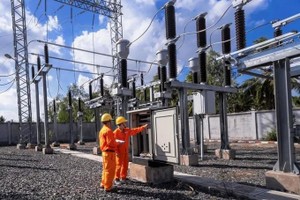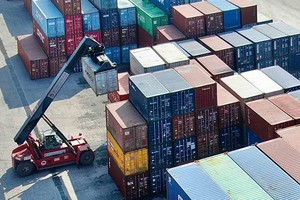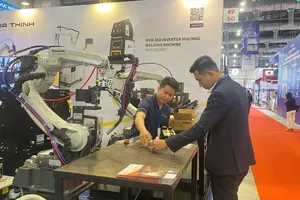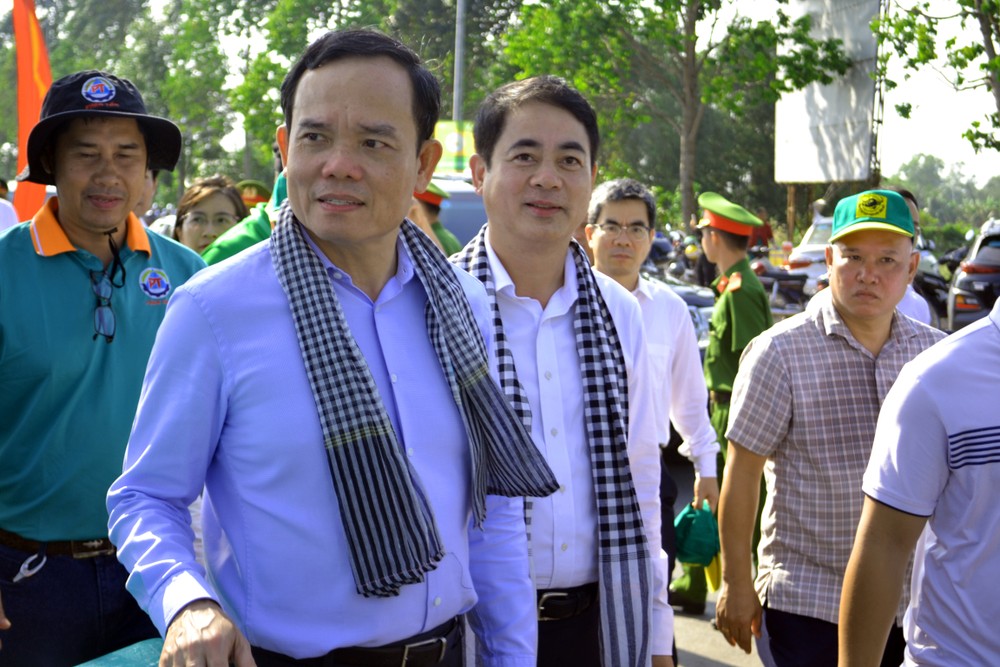
The Mekong Delta has consistently stood as one of Vietnam's major rice-producing regions. In recent years, the rice production in the area has remained steady at approximately 24-25 million tons, constituting over 50 percent of the country's total rice production and more than 90 percent of the nation's rice exports, contributing significantly to employment and income for millions of agricultural households in the region.
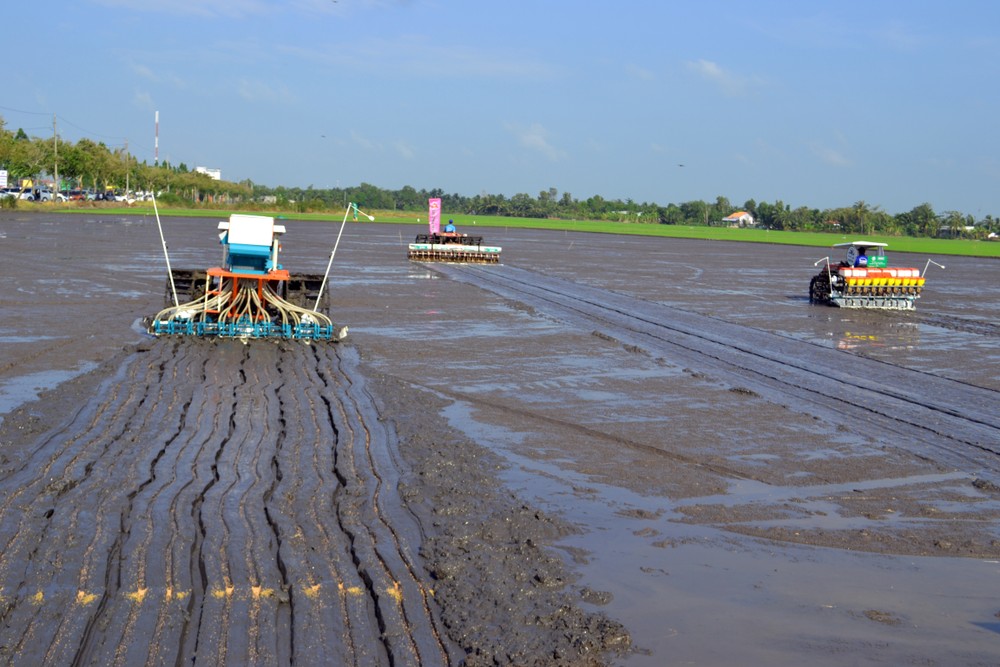
On the morning of December 12, in Hau Giang Province, with the presence of Deputy Prime Minister Tran Luu Quang, Minister of Agriculture and Rural Development Le Minh Hoan officially initiated the implementation of the project "Sustainable Development of One Million Hectares of High-Quality, Low-Emission Rice Farming Linked with Green Growth in the Mekong Delta Region by 2030."
Present at the launch event were Ms. Carolyn Turk, Country Director of the World Bank in Vietnam, alongside various international delegates, leaders from ministries and representatives from provinces in the Mekong Delta region.
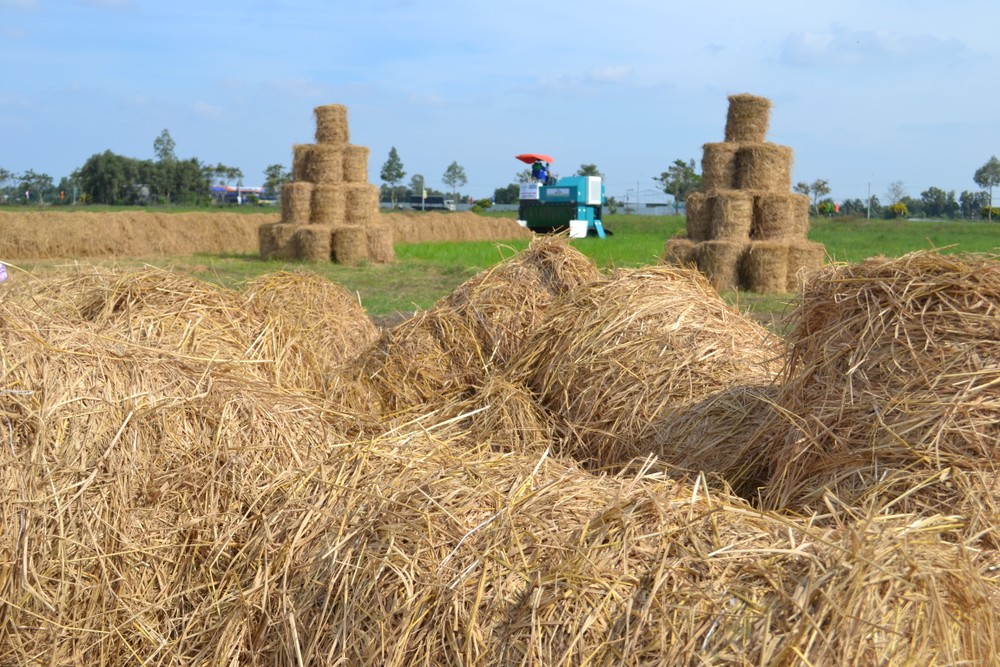
Minister Le Minh Hoan highlighted that throughout the project implementation, there will be experimental trials of new policies, including paying carbon credits based on performance, focusing on low-emission production tied to green growth, developing an agricultural economy with a circular approach, maximizing by-products from rice production, exploring multiple values, and creating various processed products from rice.
Minister Le Minh Hoan stated, "If these pilot policies prove successful in the Mekong Delta region, they will be expanded nationwide, with the aim of establishing 'Green Development, Emission Reduction, High Quality' as the brand of Vietnamese rice. The shift in perception among rice producers and businesses, effective public-private partnerships, and support from international organizations such as the World Bank (WB), IFC, ADB, and IRRI will be key to the project's success."
The Mekong Delta has consistently stood as one of Vietnam's major rice-producing regions. In recent years, the rice production in the area has remained steady at approximately 24-25 million tons, constituting over 50 percent of the country's total rice production and more than 90 percent of the nation's rice exports, contributing significantly to employment and income for millions of agricultural households in the region.
The Mekong Delta has been proactive in adopting technological advancements, leading to significant successes in the rice industry and bolstering Vietnam's rice brand on the global market. Thanks to the VnSAT project, local rice farmers have begun embracing sustainable cultivation practices, aiming at emission reduction. Initial measurements of emissions from rice production have been undertaken.
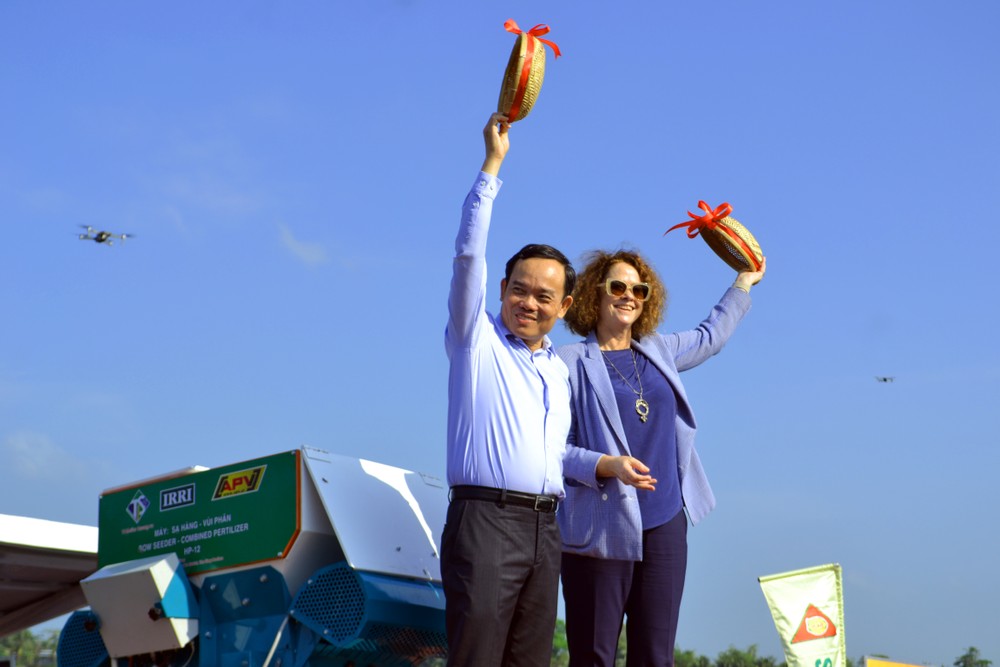
Mr. Cao Duc Phat, Chairman of the Board of Directors of the International Rice Research Institute (IRRI), shared that as the foremost international research institute focused on rice, IRRI enthusiastically applauds the Vietnamese government for launching the project "Sustainable Development of One Million Hectares of High-Quality, Low-Emission Rice Farming Linked with Green Growth in the Mekong Delta Region by 2030."
This is the first large-scale project of its kind globally. The project is immensely crucial as it concurrently addresses three pivotal challenges confronting the global rice industry and Vietnam, encompassing enhancing rice production, increasing income for rice farmers, and adapting to and mitigating the impacts of climate change.
During her speech at the launch event, Ms. Carolyn Turk, World Bank Country Director in Vietnam, commended Vietnam for its initiative in implementing the sustainable development of one million hectares of high-quality, low-emission rice farming linked with green growth in the Mekong Delta region. The World Bank pledges steadfast support and collaboration with Vietnam throughout the project's implementation.

















